As the liquidity squeeze eases, Middle East banks focus on costs, asset quality and conservative lending.
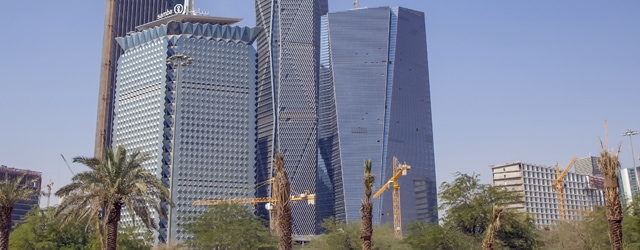
The loan portfolios of many banks in the Middle East are continuing to deteriorate, as low oil revenues dampen economic growth and weaken asset quality. However, there are signs that the region’s liquidity squeeze is easing, and there are expectations that the region’s well-capitalized banks should be able to handle nonperforming loans with relative ease.
“We expect asset quality metrics to decline slightly in 2017, as lower government spending and GDP growth affect the loan portfolios,” analysts at Fitch Ratings say in a recent report. “The loan books are very concentrated, with large single-name exposures, and high sector concentrations, particularly to real estate and contracting,” the rating agency says.
Nevertheless, many banks across the region have continued to perform well by controlling costs and following conservative lending policies. Moody’s in March raised its outlook on the Saudi Arabian banking system to stable from negative.
“The operating environment for Saudi banks will recover, as increased government spending and projects to diversify economic output will support the non-oil economy,” says Olivier Panis, senior credit officer at Moody’s Investors Service Middle East, in the Dubai International Financial Center.
The liquidity squeeze experienced since the beginning of 2015 will ease, as liquidity is injected into the system from international sovereign debt issues and the clearing of large volumes of overdue payments to contractors, according to Panis. “The profitability [of Saudi banks] will soften, but from high levels,” he says. “Main pressures will come from lower credit growth (3% expected in 2017) and higher provisioning costs, but will be mitigated by solid net interest margins and low cost of operations.”
Saudi banks will maintain the highest level of loan-loss provisioning coverage in the region, Moody’s says. It expects the Saudi economy to gradually recover, supported by government spending that is projected to increase by 7.9% in 2017.
Jordan-based Arab Bank has the most extensive banking network in the Arab world and uses this unique advantage to promote regional economic growth, making it our regional winner for the Middle East as well as the country award for Yemen. The bank helps international companies enter Middle East markets, while supporting local companies as they operate throughout the region and globally. Arab Bank also produced a 20% rise in earnings last year, while maintaining its prudent risk standards.
Arab Bank is a genuinely regional financial institution, rather than a local bank with a regional presence. It has been on the ground in the Middle East since 1930 and knows local markets from its decades of experience in meeting the needs of its clients.
The Amman-based institution receives 75% of its revenue from outside its home country. It maintains a global network of more than 600 branches in 28 countries, but it is in the Middle East where it serves niche markets better than any other bank.
Arab Bank is focused on providing loans to small and medium enterprises (SMEs), supporting economic growth and development in the countries where it is present. It has also backed major projects in electricity generation and transmission, solar power, water treatment, desalination and transport infrastructure.
Its corporate and investment bank has a well-established business platform and offers mobile banking in all key markets in the region. The bank’s global network of treasury centers provides corporations with a wide range of products, including cash management, foreign exchange and trade finance. The bank is a market maker in Middle East currencies and offers a full range of capital-markets products and services.
Arab Bank continues to grow its business and profits despite the challenging environment in which it operates. Jordan hosts 657,000 registered Syrian refugees; and its trade, tourism and investor sentiment have been affected by weak financial conditions in the Gulf countries. Moody’s Investors Service says it expects only a moderate pickup in real GDP growth in Jordan to 3.2% for 2017. Rising interest rates, driven by the US Federal Reserve and the Jordanian dinar’s peg to the dollar, will restrict demand for credit, Moody’s Investors Service says.
Samba Financial Group made headlines this year when Rania Mahmoud Nashar was named managing director and chief executive, becoming the first female CEO of a listed commercial bank in Saudi Arabia. Samba’s resilience to the economic downturn, while keeping expenses well controlled, earned it Global Finance’s award as the Best Bank in Saudi Arabia. Operating income was steady, and return on equity was 12.1% in 2016.
Samba offers a specialized local corporate banking (LCB) service that focuses on small and midsize corporations in the kingdom. The LCB business recorded significant revenue and asset growth last year, with no credit losses. The bank also houses a dedicated Islamic banking division that covers all major banking products, including sophisticated structured products. Its global transaction services are another area of strength. The SambaAccess platform has email notification of unprocessed or pending transactions, uploading of scanned images, and other improved processes to increase efficiency.
And its corporate banking group serves more than 2,000 Saudi companies, offering Islamic banking, debt advisory, loan syndication, project finance, cash management, trade and electronic banking and risk management solutions. “Samba has maintained its position for the 12th consecutive year as the best bank in Saudi Arabia,” comments CEO Nashar. “That assures us that we are moving in the right direction.”
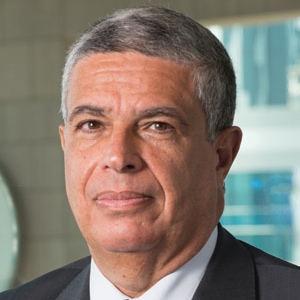
Global Finance selected Ahli United Bank as the Best Bank in Bahrain, due to its solid performance and good risk management. AUB’s earnings rose 6.2% last year to $571 million. The bank’s nonperforming loan ratio was contained at 2.3%, and the return on equity was 15.7%.
AUB’s move into the Dubai International Financial Center in March 2016 was in line with its strategy to develop an integrated banking presence in all the Gulf Cooperation Council (GCC) markets, plus Iraq, and to act as an intermediary for clients to meet their cross-border needs. The Bahrain-based bank has 141 branches in eight countries but has yet to establish itself in the big market of Saudi Arabia.
AUB has both onshore and offshore operations in Bahrain. It also operates in Kuwait, Egypt, Iraq, Oman and Libya, and has a UK subsidiary.
Adel A. El-Labban, group CEO and managing director of AUB, says: “The robust 2016 performance, achieved under a very challenging operating environment, is a testament to AUB’s resilient business model based on diversification and targeting of cross-border business flows. These results are underpinned by application of a prudent risk framework, effective asset liability management and judicious cost controls.”
National Bank of Kuwait (NBK) has a strong presence in most regional markets, as well as a 42% share of the banking industry’s profits in its home country. NBK remains among the highest-rated banks in the Middle East and made Global Finance’s list of the 50 safest banks in the world in each of the last 11 years.
In the Gulf Cooperation Council (GCC) countries, NBK operates in Abu Dhabi, Bahrain, Dubai and Jeddah. NBK Egypt has 41 branches, two of which are shariah compliant. NBK operates in Iraq through its Credit Bank of Iraq subsidiary. It also has a small network in Lebanon and Jordan.
NBK has led most of the project awards in Kuwait under the country’s economic development plan. It was the largest lender and only local bank to participate in the commercial facility for Phase One of the Al-Zour North water and power plant.
Qatar National Bank (QNB), the biggest bank in the region by assets, has expanded throughout the Middle East and Africa (it holds a 20% stake in Ecobank, a leading pan-African bank) and is now setting its sights on Southeast Asia. QNB plans to make Singapore the hub of its Asian operations and to increase its presence in India, Indonesia, Myanmar and Vietnam. The bank is 50% owned by the Qatar Investment Authority, the country’s sovereign wealth fund, and had a return on equity of more than 20% last year.
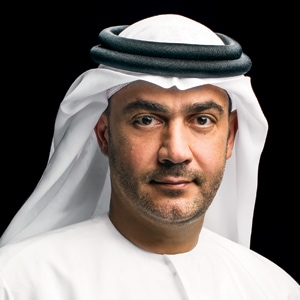
Abu Dhabi Commercial Bank (ADCB), by contrast, focuses on serving the United Arab Emirates. ADCB is 58% owned by the government of Abu Dhabi through the Abu Dhabi Investment Council. The bank’s return on average equity for 2016 was 15.7%, and its capital adequacy ratio led the UAE banking industry at 18.9%. Rising funding costs and impairments lowered the bank’s earnings by 16% last year, although they were rising strongly in the fourth quarter.
ADCB group CEO Ala’a Eraiqat says: “We are honored to receive the Best Bank in the UAE award, which comes as a testament to ADCB’s ongoing commitment to service excellence and acknowledges the array of initiatives implemented to enhance customer experience and shareholder value. The recognition inspires us to continually innovate and develop new solutions to serve our customers in 2017 and beyond.”
Eraiqat says 2016 was a successful year for the bank. “We continued to grow our revenues and manage our businesses efficiently,” he says. “Operating expenses were 1% lower, while operating income was up 3%.”
Bank Hapoalim, Israel’s largest bank, made concerted efforts to cut costs and improve efficiency. It reduced the number of its retail branches from 276 in 2012 to 238 as of September. The bank has lowered its head count and the amount of space it owns and rents, as it shifts to new electronic delivery channels.
Bank Hapoalim also is innovating in the payments space. Last year it introduced an app developed internally, known as Bit, which enables customers of any bank to transfer money quickly and easily to contacts on their smartphone.
Bank Audi, the leading bank in Lebanon in terms of assets, deposits, loans and equity, is also a regional financial group with a presence in 11 countries. The bank’s earnings rose 17% last year, with return on equity of 14.7%. Bank Audi introduced new solutions for small and medium enterprises in 2016, allocating $663 million of financing to the SME sector at below-market rates.
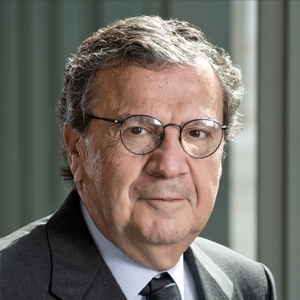
Samir Hanna, Bank Audi group CEO, says: “This Best Bank award confirms once again the group’s sustained efforts in terms of the range of products and services offered, the quality of the offer and the quick time to delivery, which are supported by state-of-the art technology to serve the constantly growing needs of our customers. This recognition cannot but further encourage us to carry forward our endeavors in order to perpetuate and consolidate our current leadership.”
Bank of Palestine (BOP) posted strong financials in 2016 and completed two important acquisitions. The merger with Palestine Commercial Bank through a share swap will increase BOP’s paid-up capital by $10 million and give it a dominant market share in Palestine across all operating metrics.
Its second deal was the acquisition of an additional 31% stake in Arab Islamic Bank, boosting its holding to 52%. AIB will remain an independent subsidiary, but the majority holding will allow BOP to provide Islamic banking solutions to a wider segment of the population.
BOP has the largest network in Palestine, with 70 branches, and the widest customer base. The bank’s profits rose 22.9% last year, and its assets increased by 48%. Loans rose 60% from a year earlier to $2.2 billion, with a nonperforming loan ratio of 2%.
Hashim Shawa, chairman and general manager, says, “Bank of Palestine has grown not only in size, but also in values and in responsibility to bank the unbanked and provide financial inclusion to the heart of the Palestinian economy—the small and medium enterprises—in every corner and in every possible way, physically and electronically.”
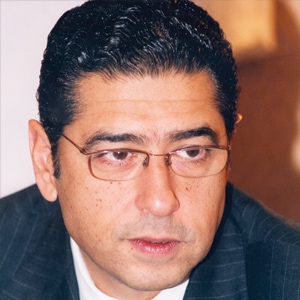
Commercial International Bank (CIB), Egypt’s largest private-sector bank in terms of revenue, net income, deposits and assets, is Global Finance’s choice as the Best Bank in Egypt because of its strong financials and dedication to serving both large corporations and small and medium enterprises while including more of the previously unbanked.
Hisham Ezz-Al Arab, chairman and managing director of CIB, says: “Having the best talent in the industry has reinforced our culture of innovation, integrity and client service and has led to consistent record results. Our people are our most valuable asset and are the reason we have been able to identify transformational growth opportunities early on that have given us a tremendous competitive edge, while maintaining a rigorous risk posture that has enabled us to weather all market environments.”
CIB has 192 branches and is the largest listed corporation in Egypt. Its earnings rose 27% last year, and return on average equity was more than 34%. CIB has benefited from a rising interest rate environment by keeping its balance sheet at the shortest duration possible. It turned in another record performance in 2016 while meeting capital requirements.
Throughout the region, the leading banks are adopting global best practices, introducing cutting-edge technology and designing ever more sophisticated products and services.
AbdulRazak Ali Issa, CEO of Bank Muscat in Oman, says: “Driven by robust policies to achieve global best practices, Bank Muscat is focused on strategic initiatives to confront challenges and further consolidate its market share. The bank prides itself on its deep understanding of customer needs, offering financial expertise and guidance at all levels. Each year, the bank adopts innovative strategies to stretch its operational standards and achieve banking excellence.”
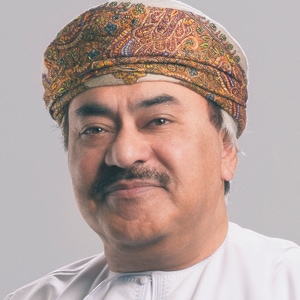
Bank Muscat remains by far the most profitable bank in Oman and has the leading corporate banking franchise. It has a total capital ratio of 16.9% and a Tier 1 capital ratio of 14.75%, well above levels required by the central bank. It has expanded its Meethaq Islamic banking unit and consolidated its leading position in conventional banking in the sultanate. Meethaq completed the first shariah-compliant financing of an aircraft purchase in Oman last year, enabling Oman Air to acquire its second Boeing 787.
Bank Muscat now has 20 dedicated Islamic branches out of a network of 154 domestic branches. It also has branches in Saudi Arabia and Kuwait, and representative offices in the UAE and Singapore.
Iraq presents one of the more difficult operating environments in the region. Bank of Baghdad, a subsidiary of Kuwait-based Burgan Bank, is Global Finance’s selection for Best Bank in Iraq. As a member of the Kipco group, one of the largest holding companies in the region, the bank has significant resources. With 40 branches, Bank of Baghdad is one of the largest private commercial banks in Iraq, with numerous subsidiaries in insurance, construction materials, food and clothing.
The bank’s earnings in the first half of 2016 were about $14 million, down from $22 million in the same period a year earlier. While Iraq’s economic growth has slowed sharply as a result of austerity measures and lower oil production, sentiment has improved recently with progress in fighting the Islamic State terror group.
|
Best Banks In The Middle East 2017 |
|
|
REGIONAL WINNER |
Arab Bank |
|
Bahrain |
Ahli United Bank |
|
Egypt |
Commercial International Bank |
|
Iraq |
Bank of Baghdad |
|
Israel |
Bank Hapoalim |
|
Jordan |
Arab Bank |
|
Kuwait |
National Bank of Kuwait |
|
Lebanon |
Bank Audi |
|
Oman |
BankMuscat |
|
Palestine |
Bank of Palestine |
|
Qatar |
Qatar National Bank |
|
Saudi Arabia |
Samba Financial Group |
|
United Arab Emirates |
Abu Dhabi Commercial Bank |
|
Yemen |
Arab Bank Yemen |



